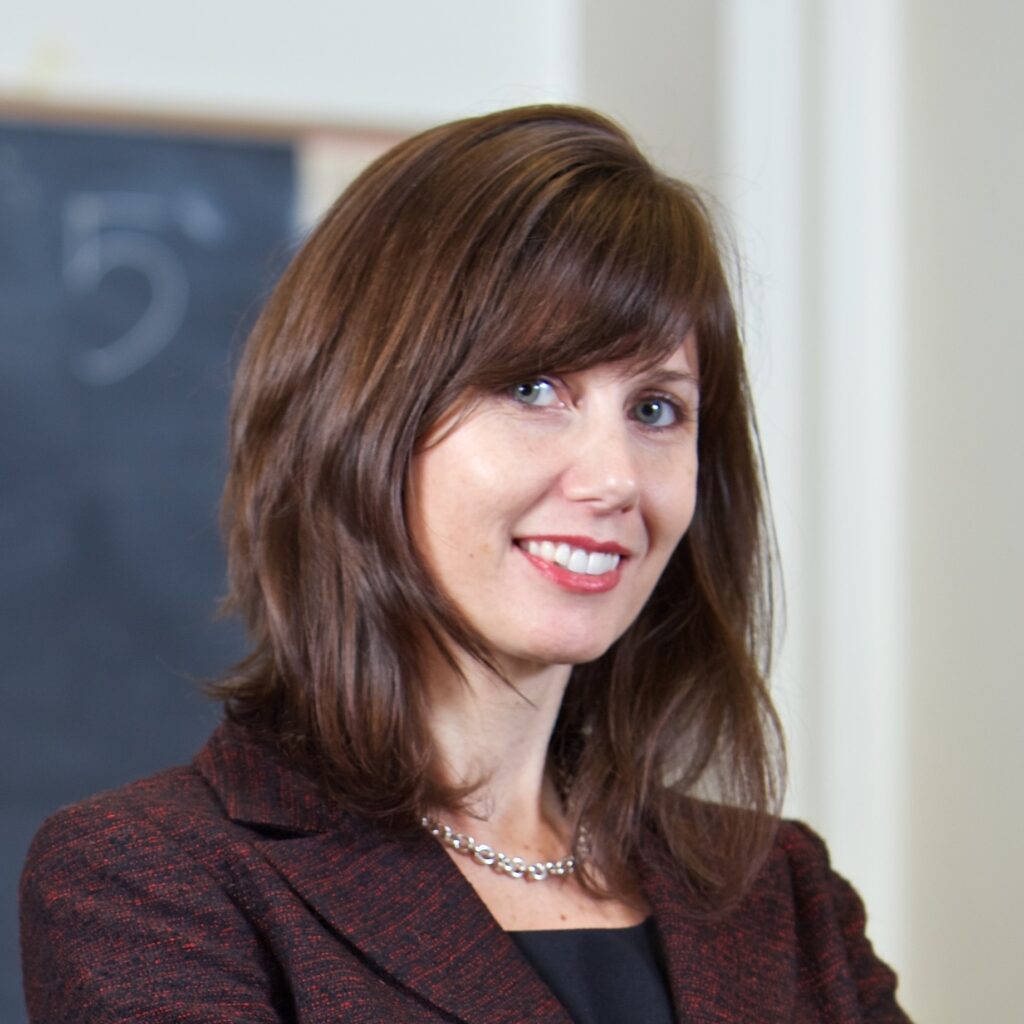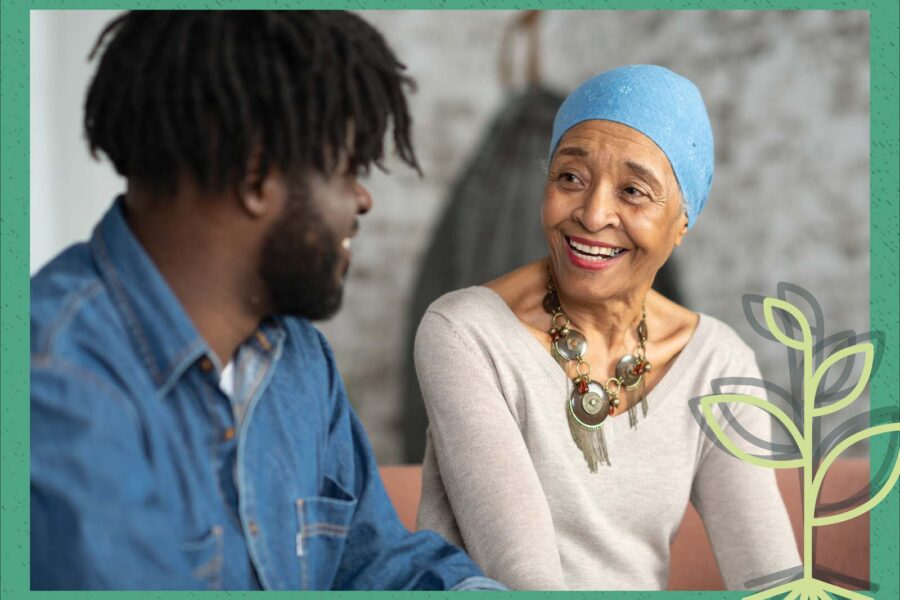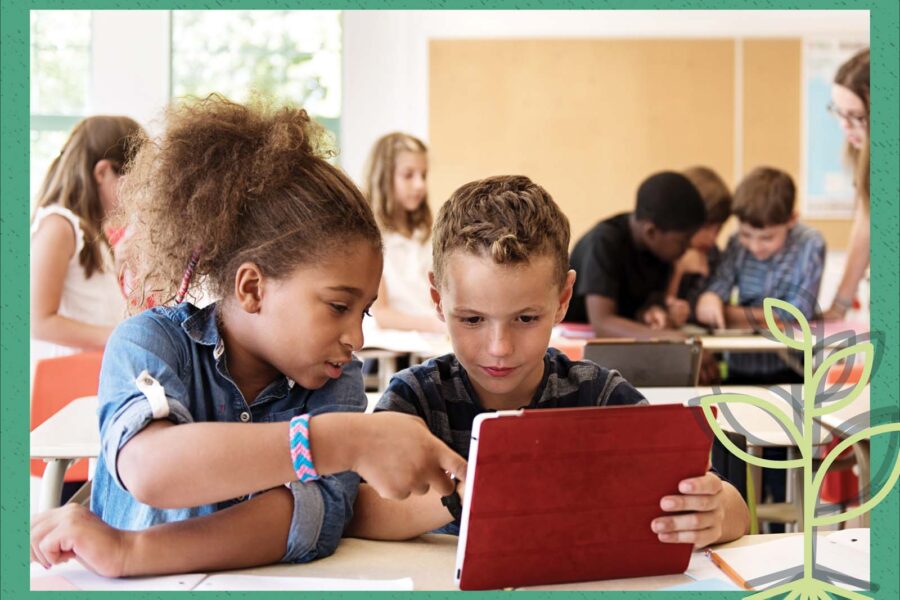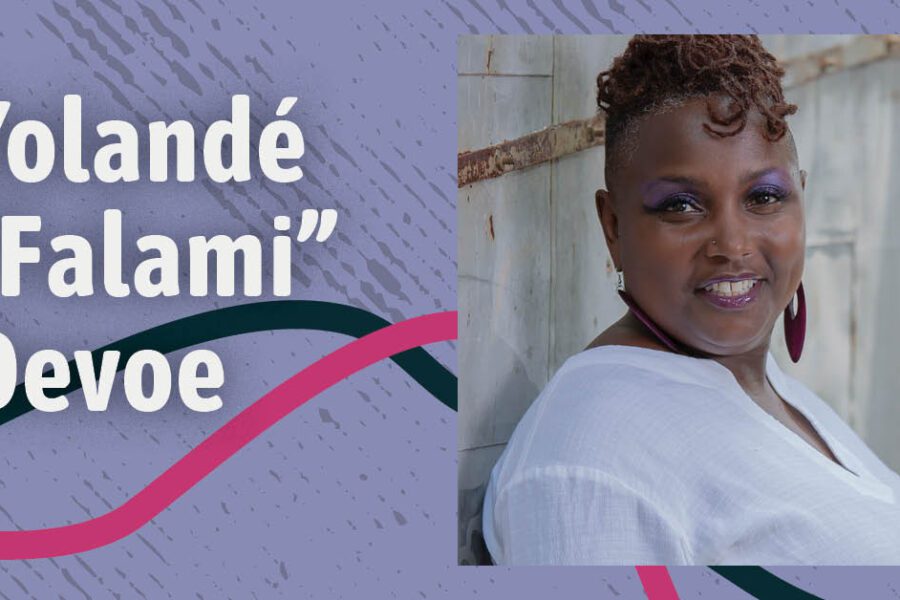Words are how we tell our stories, form our identities, and advocate for ourselves within society. But are schools doing a good job preparing students to be confident, empowered writers? In this interview with the literacy expert Heather Cheney, she discusses how writing education and literacy education are unequally distributed across our nation’s schools, and she challenges our understanding of what counts as literacy. Join us in this conversation to learn about the unequal ways that different kinds of literacy are accorded power in our society, and what we can do to change that.
Subscribe: Apple Podcasts | Spotify | Stitcher | Google | Simplecast
Episode Notes
Visit Antioch’s website to learn more about the Seattle Education programs that Heather teaches in.
Please note that Heather’s last name has changed, and she is referred to in the episode as Heather Hebard.
This episode was recorded April 18,2022 via Riverside.fm and released April 27, 2022.
The Seed Field Podcast is produced by Antioch University.
The Seed Field Podcast’s host is Jasper Nighthawk, and its editor is Lauren Instenes. Special thanks for this episode goes to Karen Hamilton and Melinda Garland for their contributions.
To access a full transcript and find more information about this and other episodes, visit theseedfield.org. To get updates and be notified about future episodes, follow Antioch University on Facebook.
Guest Bio

Heather joined the AUS community in 2019 as Core Faculty of Literacy Education and Chair of the MAT program, a post-baccalaureate program that culminates in a Washington State teaching certificate and master’s degree. She teaches courses in language and literacies to preservice teachers in the MAT and ARTC programs. As a former teacher and literacy coach, Heather is passionate about helping preservice and early-career teachers develop approaches that center social justice and dismantle white supremacy. Heather holds a master’s degree in Crosscultural Language and Academic Development from Santa Clara University and a PhD in Literacy Education from Stanford University.
S3E8 Transcript
[music]
[00:00:05] Jasper Nighthawk: Welcome to the Seed Field Podcast, the show where Antiochians share their knowledge, tell their stories, and come together to win victories for humanity.
[music]
I’m your host, Jasper Nighthawk. Today, we are joined by Heather Hebard, a core faculty member in the education programs at Antioch Seattle who specializes in literacy education. We’re going to be talking today about literacy, both the importance of literacy and the social justice implications of how we approach teaching this subject. We’re also going to be talking about the importance of writing within literacy education, especially as today, writing often can be deemphasized in classrooms in favor of reading.
Obviously, both are important, but this subject and specifically the importance of writing is really near and dear to my heart. To give a little bit of backstory before we bring Heather in, I’m a writer myself. In my 20s, I spent seven years as a poet teacher, which meant that I would go into grade schools and high school classrooms and I would teach a guest lesson and I’d come back over a few weeks.
This opportunity to teach poetry as a guest teacher gave me a really interesting lens on how students are approaching writing and writing lessons. Specifically, I noticed that they had a lot of expectations around being graded, and judged, and evaluated for their writing. The thing was with poetry, there really isn’t a wrong way to do it. You can write about what you ate for breakfast or why you really love basketball.
Anyways, over and over, I met these students who felt embarrassed about their writing skills and they felt like their writing skills were lacking, or even worse they were like, “I am stupid.” They had come to identify as stupid or, “I am bad at writing.” For myself, the best moments were when through my poetry lessons, I was in some way able to help these students open up in this creative task, and maybe they would impress themselves or surprise themselves and see or get a glimpse of how writing could be something that empowered you and gave you this way of telling your own story. Unfortunately, writing education and literacy education are really unequally distributed across our nation’s schools. The perception of what counts as literacy and what kinds of literacy are accorded power in our society are also unequally distributed.
These are some of the problems and some of the background that I bring that makes me really excited today to learn more about these questions from our guest, Heather Hebard. Let me say a few words about Heather. Heather is a long-time educator who spent seven years as an elementary school teacher before returning to school herself at Stanford, where she got a PhD in literacy education.
She worked for a long time as a professor and researcher at the University of Washington. Today, she serves as core faculty in the education programs at Antioch Seattle where she also serves as chair of the Master of Arts in Teaching. She’s published many articles, taught many courses, and I think in listening to her, you’ll also find that she’s just thought deeply about literacy education. We’re really lucky to have her leading our education programs and here at the Seed Field Podcast, we’re lucky to have her on as a guest today. Heather, welcome to the Seed Field Podcast.
[00:03:35] Heather Cheney: Thanks so much for having me, Jasper. Excited to be here.
[00:03:39] Jasper: I’m really excited to have you here too. One of the things that I love most about the podcast is that we always end up talking about questions of power and social justice in our society. In that vein, we’ve learned that it’s really important to disclose the positions that we’re coming to conversations from right at the start. I would start by sharing my own positionality.
For myself, I want listeners who are hearing my disembodied voice to know that I’m a cis-gendered man. I’m not currently living with any disabilities. I identify as white. When it comes to economics, I have a college education, a steady income, and stable housing. I think that’s enough for me to disclose right now. Heather, as much as you’re comfortable, where are you coming to this conversation from?
[00:04:28] Heather: I appreciate that so much, Jasper. I’m white and middle class. I am cisgender. I identify as queer. Specifically, I’m lesbian, but I prefer to use the term queer. What am I forgetting?
[00:04:47] Jasper: You’re highly educated as I think we know from my introduction of you.
[00:04:51] Heather: Yes, I think you covered that part. There’s obviously a lot of privilege that comes with that.
[00:04:57] Jasper: Yes, absolutely. Well, thank you for sharing that with us, and let’s jump right in. I want to pick your brain about literacy education and the teaching of writing. I think the place to start is at a million miles away, which is what is literacy?
[00:05:14] Heather: I love that question. So often when I am working with student teachers or prospective teachers, which is most of the time, they’ll come to my literacy courses thinking that literacy is reading. One of the first things we do is to expand the notion of what we mean by literacy; that it is reading, but it is also writing and more broadly than writing, it is composing. When students are thinking about what they’re going to say, for example, even just sharing with a partner before saying with a group, that’s composition.
When they’re using gesture in front of the class or using visuals to help engage their audience or help to further explain or inform, all of that’s literacy. We talk about the way that you use visuals, sound, gesture, language, both as you’re composing and taking in from your environment, all of that is literacy. Then layered onto that, all of those literacies, is the term that I like to use to note that way of thinking about literacy, are all of the languages that our students bring to the classroom. I’ll stop there.
[00:06:32] Jasper: Well, I want to draw you out on that even a little bit further because it sounds like I think a lot of people have this conception that literacy is first and foremost about being able to read written language and write written language. You’re saying that your conception of literacy also includes speaking and being able to speak thoughtfully, eloquently, digest information that is heard orally. Is that right?
[00:07:00] Heather: Yes, absolutely. I would add to that too importantly, the centrality of discussion and learning and different kinds of conversations, whether it’s more of a sharing, like you were mentioning like taking in and presenting. The example I gave was more about sharing, but there’s also deliberation or coming to a consensus or debating or exploring and actually co-constructing new ideas together. There’s so much that happens in that space between as people engage with each other that I think is so important to learning to becoming both as an individual and a community.
[00:07:38] Jasper: Seeing those skills as a cloud of skills rather than just the ability to decipher words on a page, it opens up a lot of possibilities as a teacher as far as nurturing and developing those things. Also, it seems like it pushes back against the idea of a single access where it’s like on one end is like, you are illiterate, you have zero skills. On the other end, it’s like, this is a literate person. This is somebody who has achieved literacy. It pushes back against that. Is that right?
[00:08:11] Heather: It absolutely does. Whether we’re talking about literacy development or we’re talking about adults, in my field, we don’t talk about illiteracy. We don’t use that terminology. When we’re talking about young children, we’re thinking about the way they’re making sense of the world and communicating. Really from birth, they are making sense of things. We don’t think about, “Oh, now you’re ready to become literate and you weren’t literate before,” but more that it’s– we call it emerging. That you’re – emergent literacy in those early years.
Of course, those practices deepen and broaden as children engage in broad and broader spheres and with different subject matter in school and other environments. Then similarly, as you mentioned, with adults, as we think about the range of literacies they bring, yes, absolutely. The way that white supremacy defines what literacy is also then reifies the positionationality of people as being relatively more or less literate along that very narrow band. When we expand how we think about literacy, it allows us to appreciate and bring into the classroom the many ways that people engage with ideas and develop ideas.
[00:09:36] Jasper: I think this is the fastest five minutes in that we’ve gotten to bringing up white supremacy. I think that it is really relevant in our conversation here because in our society, which has its history, a very long oppression, specifically of Black people, but also just people who aren’t defined as white, literacy is intimately bound up in that question. There’s a specific type of literacy skill that is associated with power, that often does involve the written word, or being able to fill out a voting form, or apply for a driver’s license, where you have to be able to decipher a form, produce letters and write on your own.
The federal government has some interest in tracking those specific literacy skills and promoting them nationwide, but according to their own surveys, as I found when I was preparing for this episode, one in five adults in the US has difficulty completing basic literacy tasks in this specific kind of literacy. I was hoping, can you talk a little bit about how literacy skills vary between different populations and how that relates to the history of power in our country? That’s a massive, juicy question.
[00:10:49] Heather: It is a massive, juicy question. I think I might have to backup for the question just a little bit more, thinking big picture, because you mentioned historically. What that made me think of, too, in connection with all of the different ways that now, in our society, access to even just basic human needs are often mediated by literacy. It made me think about the way that literacy was weaponized against native people in this country, who were not using reading or writing in the more defined sense of the written text and reading text in their daily lives.
As we know, of course, boarding schools were used to eradicate language and culture through English language literacy. There’s a deep history of oppression and a shift in social organization that has necessitated literacy and minoritized people who may not want to participate, or do not want to participate in literacy practices that are not part of their cultural heritage.
[00:12:02] Jasper: Yes, and that’s fascinating to think of the way that our country historically has, and the people in power have used literacy as a tool to destroy culture by promoting English language literacy and forcing it on people through these reeducation camps. At the same time, in the pre-war South, there were laws prohibiting literacy among enslaved people and among even freed black people. The way that this is– The unevenness of the way that it’s applied I think reveals that it’s not actually about literacy, it’s about power.
[00:12:45] Heather: Yes, I couldn’t agree more. The legacy of weaponizing English language literacy is still with us in schools today in the way that we, for example, support multi-lingual students in schools. Those students are often framed as English language learners. I think we have to ask ourselves why is this person with this rich linguistic repertoire being positioned as somebody who doesn’t know something, as opposed to somebody who knows a lot?
Just the very label that implies, “You don’t know English well enough,” erases all of the richness of the other things that they bring. We know, actually, too, in literacy research, that students are best served by learning to read in their own in the language they use most frequently, or with which they feel the strongest.
[00:13:42] Jasper: I like the way that you put that, and that’s so funny. I have as a reference my time teaching poetry in classrooms. One of the things that I would encourage as a teacher, I would say, “Write in whatever language you would like to,” and I would always try and bring– I was teaching in California classrooms, so we would read poems in Spanish as well. Two things, one, I had a number of students who wrote– I had some who wrote in Arabic or Urdu, but I had many students who wrote in Spanish.
Some were extremely good at writing in Spanish, but some students were what we’d define as or what in my traditional use of the term, I would say they were illiterate in Spanish. They had no idea of Spanish orthography, the way that you would write a word like muy. This is their language that they are fluent in at home, but then they get in the classroom and they’re really good at writing in English, not the language of their background. I’m talking too much, but what you’re saying about fostering written and reading capabilities in the first language or the most commonly used language of a learner just seems like something that we’re falling down on massively across our country.
[00:15:03] Heather: We are. It’s strange we think about other countries and the way that multilingualism is valued and fostered in schools, and how it’s more the exception than the rule here to have multilingual opportunities in school. I also just really love what you said in those examples from your poetry classes, because we think of poetry as deeply personal, but I really think of all writing as deeply personal. It’s your ideas, it’s your identity. To imagine going through school, where all of my ideas and identity can only be represented in a language that is not my own and that many multilingual students experience as oppressive, is harmful.
[00:15:45] Jasper: That’s so important just to say. I think that that’s a good place to pivot to talking about equity inside literacy education. Starting from the proposition that all students need literacy skills, it’s clear that different students have different needs in what you can foster. How do you approach this as a teacher or as somebody thinking and helping future classroom teachers, just distributed and different need between different populations, but also just different individual students?
[00:16:17] Heather: Yes, that’s such a great question. I think I want to answer it in two parts, because you’re right, students do come in with a range of literacy and language repertoires. As classroom teachers, it’s our job to think about, how do we meet all the needs of those students? For me, as a social justice educator, I first think about fundamentally reframing literacy for and with my students. What I mean by that is creating an environment as you so wonderfully put around your poetry lessons that embraces all languages.
Most students don’t feel that they should write in their own language in a classroom. Sometimes even, especially older students, when you invite them to write using all of their languages, they don’t, because they’ve been shamed in the past, or they just implicitly get messages around the school. For example, everything’s always only spoken in English and written in English around the building. They get messages all the time that their language is not welcomed.
Sometimes it takes multiple invitations, it takes examples, it takes reading authors that mix languages. There’s a movement in literacy education right now that focuses exactly on this, an approach that we call translanguaging, which means exactly what you said, Jasper, of bringing in all of your language repertoires to writing. Students might mix languages together as their writing, or write in one language or the other, and really to welcome all of that, because all of that language is part of who they are and part of how they can express themselves, right?
[00:17:56] Jasper: Yes. I love that in part because your description of how students feel comfortable. I think sometimes people get confused when we talk about making the classroom a safe space, but I think that feeling like you’re not going to be shamed for using other of your language skills is a great example of what a truly safe classroom could look like.
[00:18:19] Heather: Yes. That’s just one of the many ways that– That’s just one example of a reframe from a language perspective. The other way to reframe it is to think about what is literacy and what counts. The way that that happens is by showing students what you value, what gets highlighted in the curriculum. If children are using and inventing rope rhymes on the playground, that’s amazing literacy. Yes, when I think about reframing literacy, I think about bringing in all of the ways in which students are taking in their worlds and basically reading their worlds and composing in their worlds. Hopefully, through composing, remaking and bettering the world and their own positions on it.
Any teacher has students coming in with different conceptions about their own language and literacies, and the language and literacies of others. Part of my job is to help reframe. For a student who is monolingual, white, financially privileged, has a lot of literacy practices that are valued in school and society, part of the work I might be doing with their learning is to help them expand and appreciate the other literacies that may not be as privileged, but are also so rich and so important to our society, to the identity and lives of their friends and classmates. I hope through my literacy teaching to them, I hope that they will see that and appreciate that richness and what it brings.
[00:19:56] Jasper: That’s creating a classroom environment where people have permission to bring their different skills, but also where everybody, especially your white students, know that this is something that has permission to be here and that is to be accorded equal respect.
[00:20:14] Heather: Yes. I say that because sometimes when we talk about reframing literacy or multilingual practices the focus is on, and of course it should be, what is the experience of the multilingual learner or the student who is typically marginalized in classrooms? Of course, we want to center that, but sometimes folks that make the mistake of thinking that those pedagogical practices and those curriculum choices are only for those students who are marginalized typically in schools and they’re not. They’re just as important for the students who are centered and privileged in schools, because that reframing of how they see themselves and others in language and literacy is also super important for equity.
The second part I wanted to note is you asked, what’s a teacher to do with all of these different languages and literacy repertoires, different needs, different strengths. How does a teacher do it? I think there’s, of course, a long and technical answer about all the multiple ways. The 30,000 foot view is really about creating literacy environments where students are engaged in complex tasks that allow them to connect with their identities, think deeply, work in community, and engage authentically.
That’s where great literacy learning happens in those kinds of complex tasks. Unfortunately, what we often see in literacy classrooms and through literacy curriculum, particularly for students who are furthest from educational justice, is a skills-based approach where literacy is discretized into testable bite-size bits that often are decontextualized from any meaning, certainly not connected to student identities, and frankly, aren’t very interesting.
[00:22:06] Jasper: Yes. It sounds like these endless worksheets where you have to fill in what the missing word is from A, B, C, and D and any student is going to be like, “This is just a chore, this is not fun. We’re not going to be engaged.”
[00:22:21] Heather: Yes, exactly. Then we think about who even those worksheets privilege. Students who are good at doing school are often students where there’s a cultural match between what’s being asked or implied in something like a worksheet or a writing prompt where there’s no instruction, but students are to produce something and magically know how to do it. In those kinds of classrooms, white students, again, get the privilege. While often the justification for skills-based curriculum is to “bring everyone to standard”, what we see is that it can disengage the very students that it’s designed to support because it’s not embedded in meaning or students lives – who they are.
[00:23:04] Jasper: That was so beautiful how you described these complex tasks that students are engaged in, in community with other students, and that are attached to things that have meaning in their actual lives. On one hand, that sounds to me like that’s how all subjects should be taught from math through the sciences and music and everything in a way that directly ties into students’ lives.
I know that you have this broader emphasis in your teaching on writing, as opposed to just teaching, reading fluency. Of course, I think teasing the two apart is a losing game, but it does seem like you can’t do those complex tasks without it involving writing as well. Can you talk about the focus on writing within the teacher preparation programs that you run in Seattle?
[00:24:05] Heather: I love that framing, Jasper. Thank you. I couldn’t agree more. Disentangling them might be an impossible chore and maybe a chore we don’t want to do because we understand that reciprocal relationship and how reading and writing. I would add talk; all work together to support both understanding, critique, and knowledge creation.
There are really so many reasons to focus on writing and not just primarily reading. I think one for me that’s core to my practice as a social justice teacher educator is the importance of student agency, certainly in reading and in developing critical lenses on how we read the world, which is so important for individuals who are minoritized in school and society, but also really essential for democracy. There is certainly agency in that and implicated in that is expressing that critique or maybe even not participating at all by critiquing, but to just reinvasion and invent and create new ways of framing things, new ways of seeing, new ways of doing that move our society forward that honor who students are.
To me, writing is a key way that people do that. It might be in something as simple as a meme or it might be in a lengthy op-ed for the Washington Post and everything in between. All of that is how we compose in response to and to reshape our worlds. My goal for my students is to help them see that their voice matters, people are listening, and that there’s power in thinking about the multiple ways that we communicate and the impact that communication can have.
[00:26:10] Jasper: Wow, that’s so beautifully put. I think in my own work in classrooms, but also just as a writer and somebody who works with other writers, I think that it’s so valuable for people to realize that they can change their world through using their words spoken and written and they can make sense of their reality. Having broadly defined literacy skills might involve being able to finish a multiple-choice test. Actually being a writer means being a creator, being a storyteller. I think that the role of creativity and writing can sometimes get lost. When you’re teaching writing, do you emphasize creativity and creation?
[00:26:58] Heather: Yes, absolutely. To me, creativity is intimately tied with identity. As we’ve talked about before in literacy, in general, our approach at Antioch, as we educate new teachers, a big focus is on student identities as all of who they are bringing all of that to the classroom. Also, building a literacy identity. You mentioned students feeling like they weren’t good writers. Helping them see themselves as writers as part of who they are, building that identity as a strong reader, critical reader, strong writer, critical writer.
To me, creativity is inherent in all of that. The work of becoming, of changing, of knowing who you are, of figuring out who you are is a creative process. Deeply thinking about the world around you and critiquing the advertisements or the Cable News or the story that stereotypes folks with whom you share an identity, all of that’s really important work and that’s intellectual work, that’s also creative work. Then there’s the way we often use creativity around word choice. I’m expressing myself that expressionist orientation to writing that often has to do with personal narrative and poetry. Of course, there’s creativity there too.
To me, with writing when we’re thinking about the intersection of audience and purpose and the writing choices we’re making, whether it’s what we’re writing about or the genre we’re writing and all the way down to word choice, all of those rhetorical choices that we’re making are deeply tied to being creative because there’s so many ways we get to go.
I think the more students understand writing deeply, the more creative they can be because the more choices they are making and the more agency they have. To me, all of that works together. The creativity, the deep knowledge helps students to develop their own sense of agency and competency as writers and agents too.
[00:29:04] Jasper: Hearing you describe this, I’m realizing that you have almost a rhetorical or an intellectual move of taking something that may have a narrow definition the way it’s normally used and looking at it as a broader concept. Seeing literacy in places where literacy is not always, people aren’t always saying, “Oh, the way that you talked over a meal with your family is literacy,” but saying that is, or seeing creativity saying, “The way that you choose your words or choose to your sentence together, describing that meal is itself a creative act.” You don’t have to be describing the beauty of a rainbow for that to be creative. It seems like part of your broader project.
[00:29:46] Heather: Yes, that’s interesting to think about it. I think that does make sense that there is definitely some broadening. I think maybe it’s interesting that you said that, Jasper. I’m reflecting now on, like, “Why is that?” I think maybe it’s because schools tend to artificially narrow what counts as important. Part of that is the multi-million dollar curriculum industry, part of that is testing, which of course, is all mediated by white supremacy. I think if we are to make schools relevant and inclusive places, it’s going to require breaking down a lot of walls that we’ve invented primarily in service of white supremacy.
[00:30:28] Jasper: Absolutely. We’re, unfortunately, almost out of time. I want to ask my last question about the work of breaking down those walls, especially at this time. We’re recording this in early 2022 and across our country, new laws are being passed to keep Black people and poor people more generally from voting, Republican legislators are working to prevent schoolchildren from even hearing about the history of slavery in our country or the existence of gay people, of LGBTQ folks.
Many other things are happening that are caused to think that the realm of what is possible, the realm of who is included, and the ability to make these gains are really under siege. With that awareness of what we’re up against today, my question to you is, specifically for literacy educators working today, what are the opportunities that maybe are exciting and we’re good things are being made? Also, what are the responsibilities that literacy educators have?
[00:31:40] Heather: That’s such a great question. As you can imagine, all of this weighs pretty heavily on my mind as it does for many educators. I think I’ll start with a specific example, out of character, I know, because when you said responsibilities it made me think about how we prepare our teacher candidates for their careers. An important part of that is centering their responsibility to the students and communities that they serve.
One of the things that we do each year is called a Teachers’ Rights and Responsibilities panel. In that panel, we have a civil rights lawyer that specializes in education, we have principals who are doing critical work to transform their schools to become more equitable workplaces. We have teachers who are working with principals like that but also teachers who are in buildings that are maybe not supportive of reframing and reshaping society through education.
Part of the goal of this panel is both to help teachers understand what their rights are so that when they’re told by a parent or school board or a principal or a department head, like, “Oh, no, you can’t read that book or that poem is controversial.” If literacy isn’t talking about things that matter, which are often could be considered “controversial”, I’m not sure what we’re doing except to back to the banal worksheet packet.
[00:33:10] Jasper: Or back to what you were saying about the way that education was weaponized in boarding schools that took away the culture of the people who they were supposedly educating.
[00:33:21] Heather: Yes. I think we do really try to underscore the responsibility and also help new teachers navigate that and think about where can you push more broadly to change things in the school? What opportunities are there for subversion? Even in the most constrained circumstances, which are often serving students for this from educational justice, I talk about where’s the wiggle room? Where can you shift something a little bit to connect to students’ identities or their communities, to bring a critical lens, to build community in your classroom, and really honor who students are? Just as an example.
There’s also a lot of really great work happening out there at the same time that all of these things are happening. We also have things like the Abolitionist Teaching Network which is an incredible web resource that offers workshops and materials that support teachers who are trying to teach for change. There’s more and more of that out there all the time.
Even as very conservative or white supremacist people are running for school boards and winning, there’s also a lot of great work out there that teachers can tap into. I think that having that network and connecting with like-minded teachers, and others in education, is one opportunity that will help teachers to fulfill their responsibilities and still sustain because the work is essential and it’s also hard. Those are some things that we focus on as we prepare teachers for their field.
[00:35:08] Jasper: Thank you so much, Heather. It’s a reason for hope to hear about some of the conversations that you’re having with your students and your colleagues in this field. It’s been such a treat to get to talk with you and learn from you today. Thank you for coming on.
[00:35:23] Heather: Thanks so much, Jasper. It’s been delightful to talk with you today.
[music]
[00:35:37] Jasper: To learn more about the Seattle Education programs that Heather teaches in, visit Antioch’s website, antioch.edu. We’ll link directly to more information in our show notes. We post these show notes on this podcast’s website, the seedfield.org, where you’ll also find full episode transcripts, prior episodes, and more.
The Seed Field Podcast is produced by Antioch University. Our editor is Lauren Instenes. I’m your host, Jasper Nighthawk. A special thanks to Karen Hamilton and Melinda Garland.
[music]
Thank you for spending your time with us today. That’s it for this episode. We hope to see you next time. Don’t forget to plant a seed, sow a cause, and win a victory for humanity. From Antioch University, this has been The Seed Field Podcast.
[music]
[00:36:50] [END OF AUDIO]





